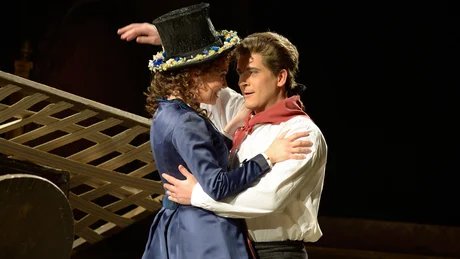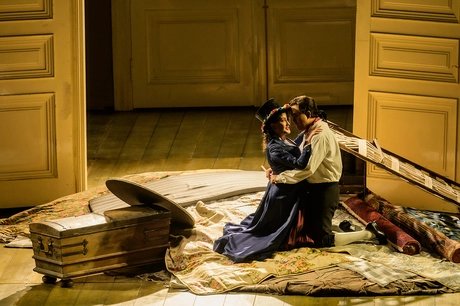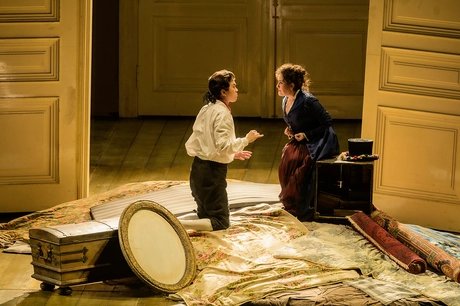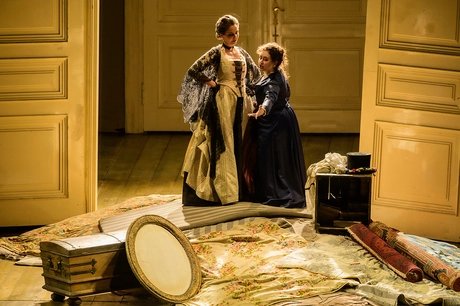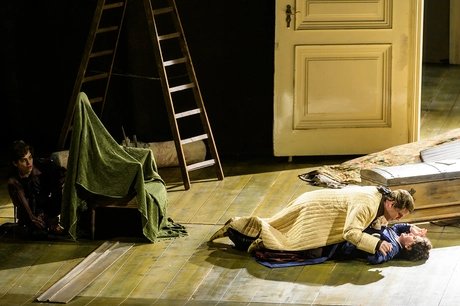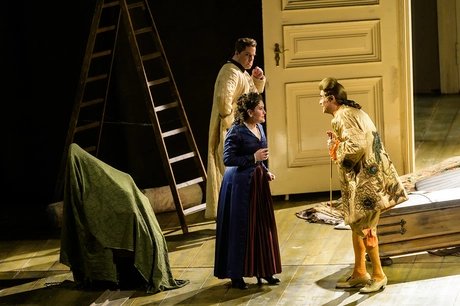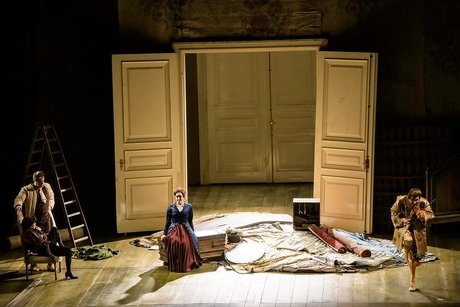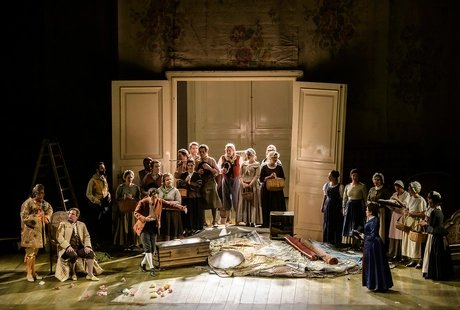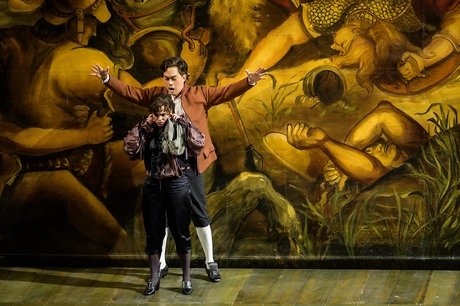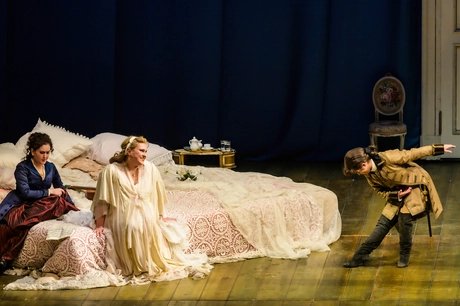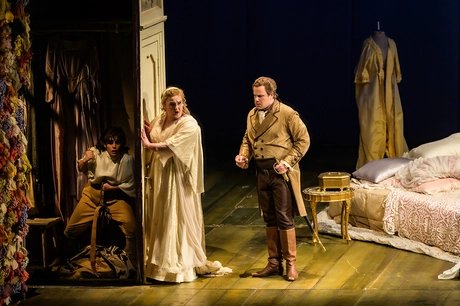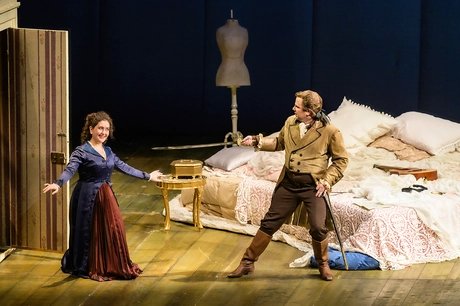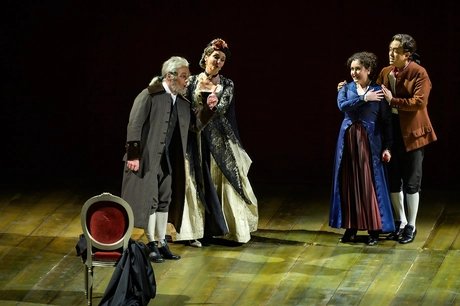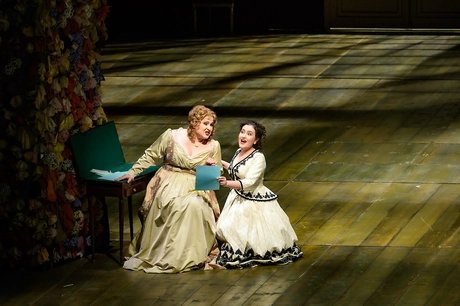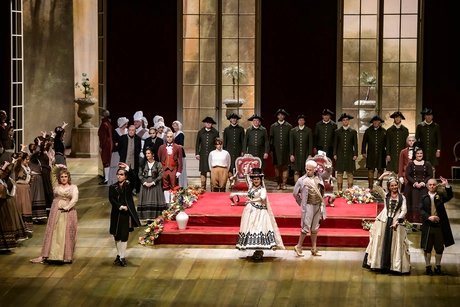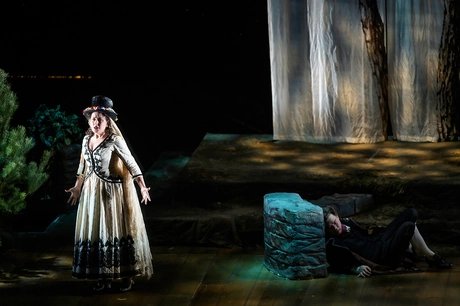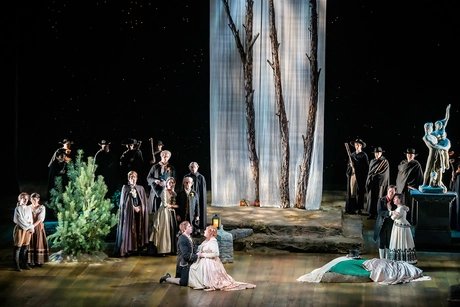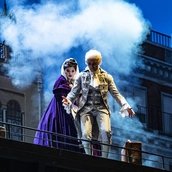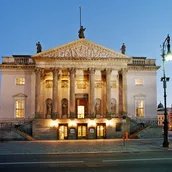
The Marriage of Figaro 2025 – Mozart opera live in Berlin | Deutsche Oper
A pair of servants rebel against their master. Figaro and Susanna, employees of Count Almaviva, are about to marry – but the Count tries to exploit his position of power and win Susanna over. When Susanna distrusts his true intentions, Figaro concocts a plan to teach his master a lesson.
At the same time, other characters are also caught in a web of jealousy, deception, and romantic confusion: The Countess suffers from her husband's infidelity, the young page Cherubino causes turmoil with his amorous adventures, and the old housekeeper Marcellina also lays claim to Figaro.
What follows is a series of intrigues, masquerades, and surprising revelations – at the end of which not only the servant couple but also the feuding noblemen find peace. A happy ending – but not without a critical look at gender roles, power relations, and social norms.
Mozart Meets Enlightenment – The Opera Le nozze di Figaro
Social Criticism at Musical Perfection
Mozart's Figaro is based on Beaumarchais's scandalous comedy La folle journée ou Le Mariage de Figaro – a play that caused a stir before the French Revolution. Mozart and da Ponte took the core of the story and transformed it into one of the most sophisticated musical comedies of all time.
The opera delights with:
- Psychologically nuanced characters
- A witty and intelligent plot with depth
- A wealth of timeless arias, duets, and ensembles
Classical production by Götz Friedrich: An evergreen of the repertoire
Since its premiere, Götz Friedrich's production has been considered one of the house's classics. With a keen sense for the absurd and the human, for interpersonal entanglements and social dynamics, Friedrich brings the comedy to the stage – without sentimentality, but with pointed sharpness and clear direction.
His Figaro is not just an amusing servant, but a symbol of social emancipation – supported by strong female characters and a rebellious youth demanding new values.
Cast & Musical Direction
- Conductors: Ben Glassberg / Anna Handler
- Director: Götz Friedrich
Featuring:
- Dean Murphy / Thomas Lehman – Figaro
- Flurina Stucki / Maria Motolygina – Susanna
- Lilit Davtyan, Martina Baroni / Arianna Manganello, Artur Garbas, and others
Sung in Italian with German and English surtitles
- 3 hours 45 minutes / One intermission
Additional information
- Commedia per musica in 4 acts
- Libretto by Lorenzo da Ponte
- First performed on 1st May, 1786 in Vienna
- Premiered at the Deutsche Oper Berlin on 14th December, 1978
45 minutes before beginning: Introduction in German language
Participating artists
Ben Glassberg (Musikalische Leitung)
Götz Friedrich (Inszenierung)
Herbert Wernicke (Bühne)
Herbert Wernicke (Kostüme)
Ogün Wernicke (Kostüme)
Thomas Richter (Chöre)
Rolf Warter (Choreografische Mitarbeit)
Dean Murphy (Graf Almaviva)
Flurina Stucki (Gräfin Almaviva)
Nina Solodovnikova (Susanna)
Martina Baroni (Cherubino)
Padraic Rowan (Figaro)
Burkhard Ulrich (Don Basilio)
Jörg Schörner (Don Curzio)
Jared Werlein (Bartolo)
Elissa Pfaender (Marcellina)
Hye-Young Moon (Barbarina)
Paul Minhyung Roh (Antonio)
Stephanie Lloyd (Zwei Mädchen)
Kristina Griep (Zwei Mädchen)
Chor der Deutschen Oper Berlin (Chor)
Orchester der Deutschen Oper Berlin (Orchester)
